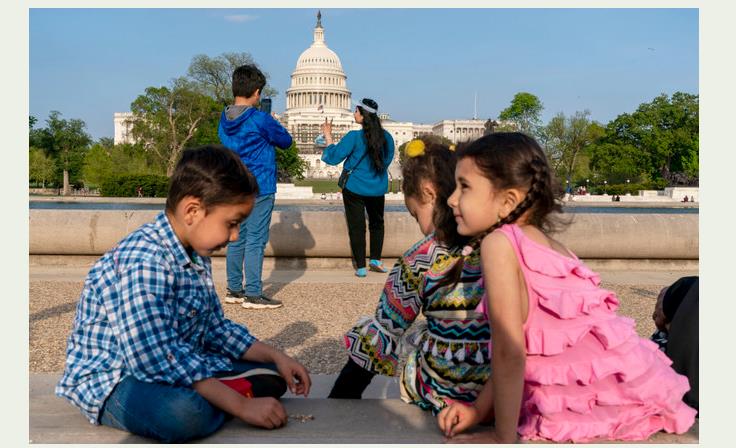
Aimed at supporting Afghans and Iraqis who came under threat for their work with the US, the special visa programs have lengthy application processes
Some of those working for the US government or military have been killed in Afghanistan in attacks by the Taliban and other insurgents in the past years
KABUL: The US Embassy in Afghanistan will re-start issuing Special Immigration Visas (SIVs) for locals who worked for the US military and entities affiliated with Washington in the country, after suspending them in March due to coronavirus disease (COVID-19) pandemic, two US diplomats in Kabul told Arab news.
A US press report earlier put the number of those affected by the suspension of the visa approvals at thousands, but embassy staff said the figure stood at hundreds.
“In early February, the embassy’s consular section will begin a phased resumption of immigrant visa interviews, including interviews for SIV applicants,” a diplomat at the US Embassy in Kabul told Arab News, on condition of anonymity, on Tuesday.
“The initial phase will prioritize interviews postponed earlier, after which we expect to coordinate with the National Visa Center to resume scheduling new immigrant visa appointments for applications (the documents of which) are complete,” the diplomat said.
She added that because of ongoing COVID-19 measures, the embassy will have a reduced appointment capacity. The health and safety of applicants and staff will be the first priority as visa interviews resume, which may require future cancellations or reductions in appointments.
She could not say how many visas the embassy expects to process.
“We can’t provide the numbers that have been issued or that are waiting. However, Congress has authorized 26,500 principal applicants and the numbers remain available until the program ends. That is, they do not expire if unused in a given year — they carry forward into subsequent years. Specifically, no numbers have been lost due to the COVID-19 pandemic,” another senior US diplomat told Arab News, also requesting anonymity.
More than 7,000 special visas allocated to Afghans by the US Congress in 2020 went unissued, compared with about 5,000 the year before, the Washington Post reported last week citing US State Department data.
Aimed at supporting Afghans and Iraqis who came under threat for their work with the US, the special visa programs have lengthy application processes that have prolonged the average waiting time to three years.
Some of those working for the US government or military have been killed in Afghanistan in attacks by the Taliban and other insurgents in the past years.
Embassy officials could not say if, amid the surge of targeted killings in recent months, any of the applicants waiting for SIVs had lost their lives or filed complaints of threats against them since the halt of the program in Afghanistan.
Two beneficiaries who worked for the US military as translators until 2019 said they had received threats by phone and had to change their residences as a result.
“The person from the other end said: ‘We know who you worked for, and (you) are a traitor of the country. We are after you,’” one Afghan translator, who worked with the US, said.
The International Refugee Assistance Project (IRAP), a US-based legal and advocacy organization, has documented and conducted research on SIVs both in Afghanistan and in Iraq.
“For more than a decade, the Iraqi and Afghan SIV programs have provided a pathway to safety for Iraqis and Afghans whose service, alongside US forces, diplomats, and aid workers, has exposed them and their families to threats, harm, and death,” IRAP said in a document obtained by Arab News.
“Tens of thousands of Iraqis and Afghans have been safely resettled in the US over the life of the program and it continues to operate today. The process has not, however, been smooth. Over the years, the SIV programs have been beset by technical, practical, and political obstacles and inefficiencies that have hampered their operation and threatened the promise that the US government made to these allies for their service.”
Any future SIV programs should be adjudicated by diplomats in a location that supports sufficient resources, set clear expectations for processing times, ensure that adequate numbers of visas are authorized and issued, accept credible statements from applicants as proof of an ongoing serious threat, and ensure that the surviving spouses and children of deceased applicants can pursue visas, it said.












